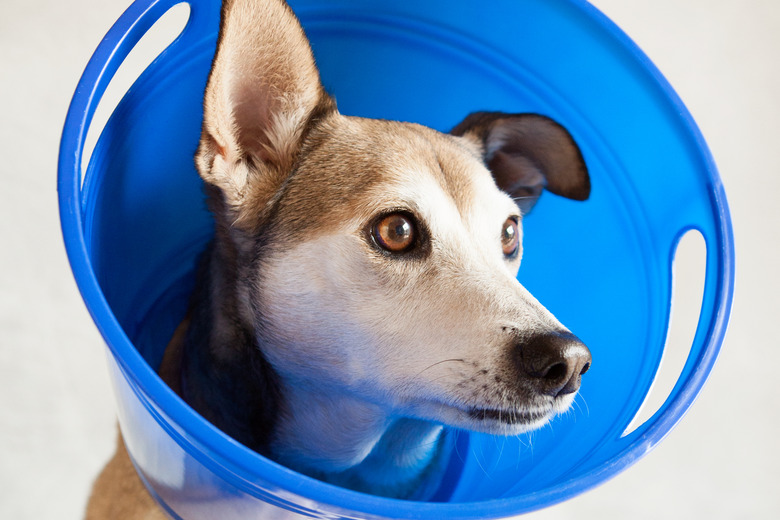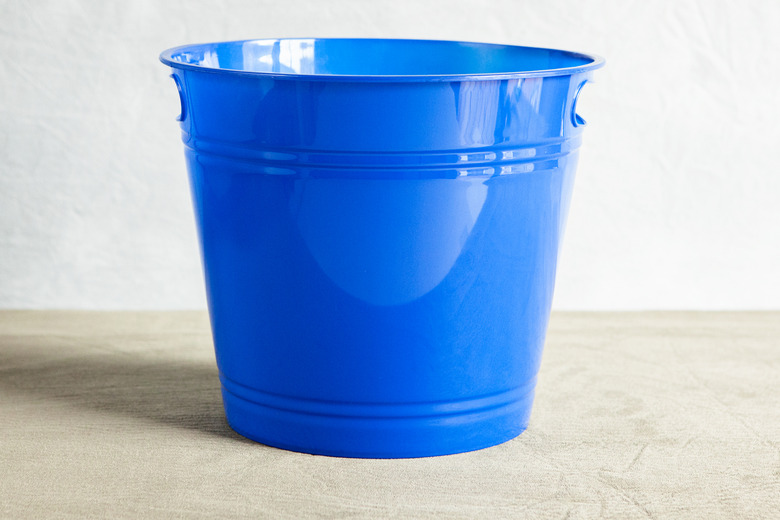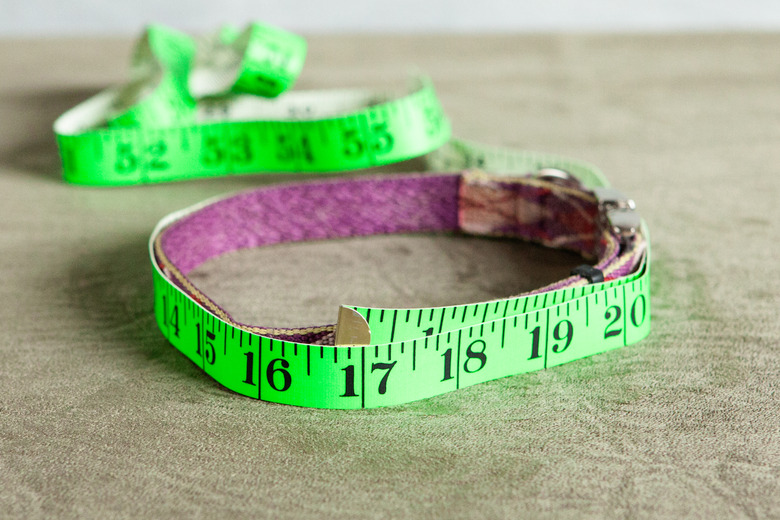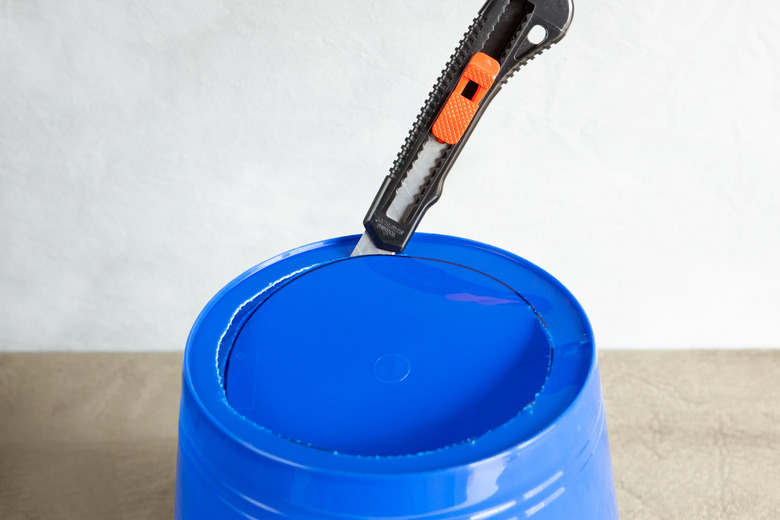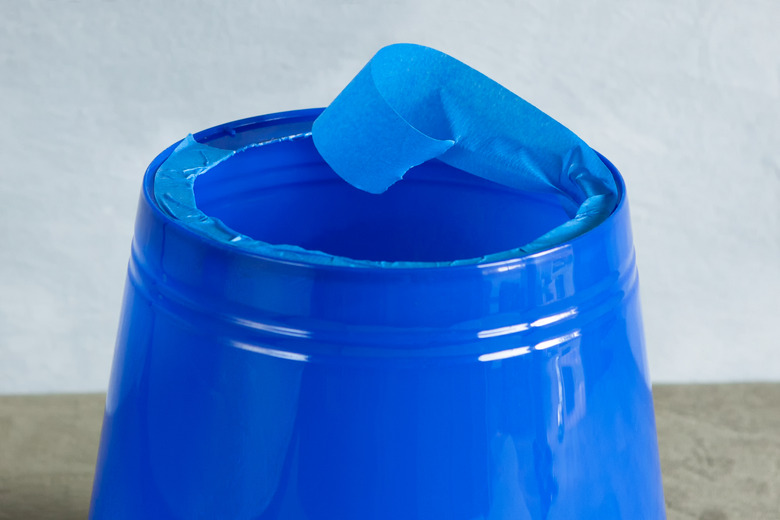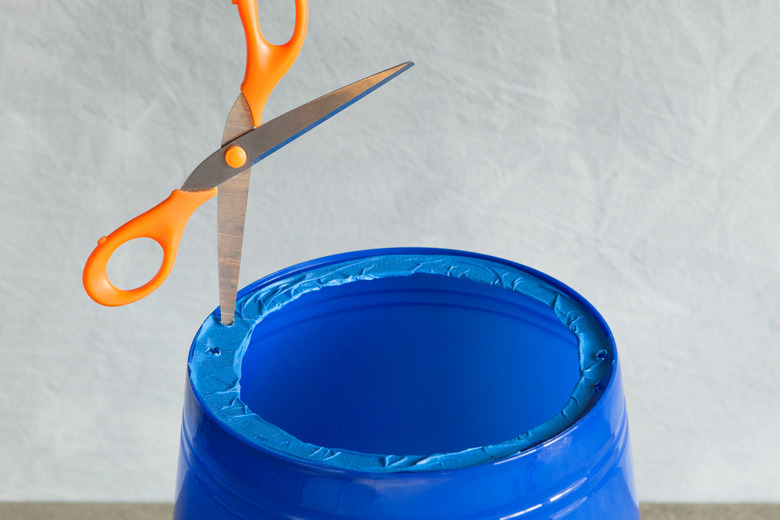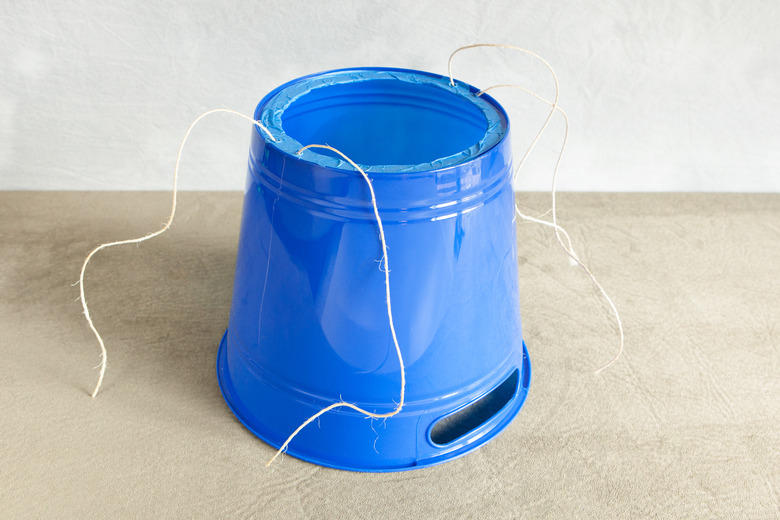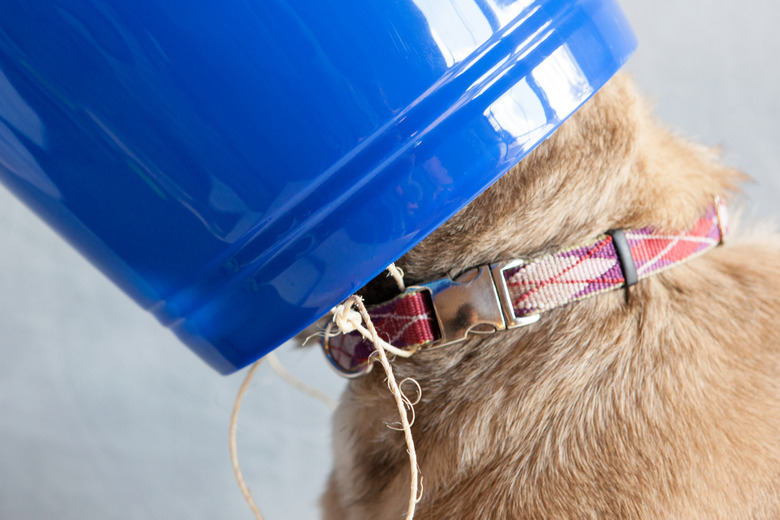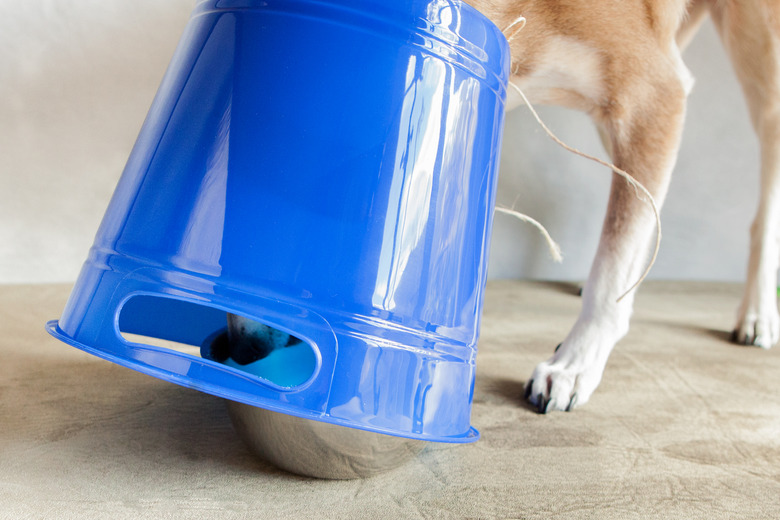How To Make A Dog Head Cone To Prevent Wound Licking
Things Needed
-
Plastic container
-
Dog collar
-
Measuring tape
-
Pen
-
Masking tape
-
Scissors
-
Twine
It is a dog's natural instinct to lick and bite at a wound or at any ointment or medication applied to its skin. To help prevent this, a cone, often referred to as an "Elizabethan collar" from its shape, is often placed around the dog's head. These cones can be obtained from a veterinarian; but you can also make one at home from materials that are readily available in your garage or hall closet.
Step 1
Locate a suitable plastic container to fashion the collar from. Plastic flower pots come in various sizes and one will work well for a smaller to medium dog, while a plastic ice cream bucket can be utilized for a larger dog.
Step 2
Measure the area from about 1/2 inch in front of the dog's nose to the collar on its neck. This will be the length of the cone. Loosen the dog's collar slightly, slip it off without unfastening it and measure the circumference. This will be the circumference of the neck hole for the cone.
Step 3
Draw a hole in the bottom of the plastic container that is slightly larger than the circumference of the dog's collar. Cut out the hole with a utility knife.
Step 4
Cover the edges of the hole with masking tape. This will make the cone more comfortable for the dog.
Step 5
Poke small holes around the opening about 1/2 inch from the cut edge with a pair of scissors or a metal skewer.
Step 6
Thread a piece of twine through these holes. Leave the ends dangling for now.
Step 7
Place the cone over the dog's head. Pull at it slightly to ensure that it will not slip off.
Step 8
Place the original collar back onto the dog and attach it to the cone with the twine.
Step 9
Make the cone shorter if the dog is not able to eat or drink with it on. When the dog lowers its head the collar should slide back slightly, allowing it to eat and drink. Do not cut the cone too low or else the dog will be able to get at its wound.
Always check with your veterinarian before changing your pet's diet, medication, or physical activity routines. This information is not a substitute for a vet's opinion.
